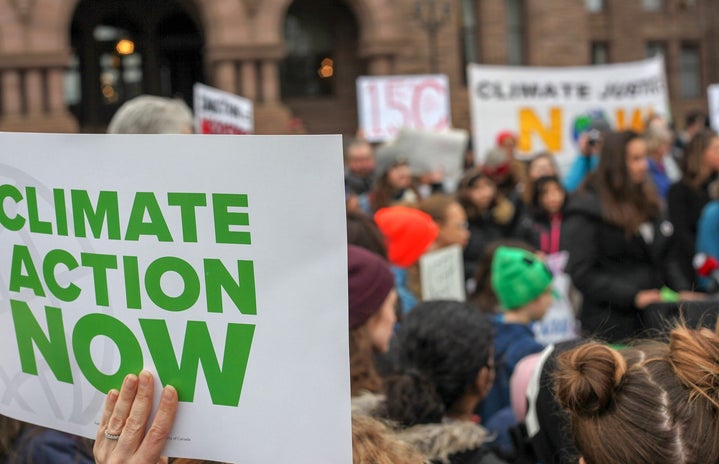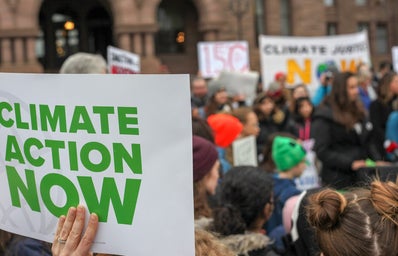We can still build a world of clear air, green jobs, and affordable clean power for all.
Antonio Guterres, General Secretary of the United Nations
Climate action can’t wait!
To all those working, marching, and championing real climate action, I want you to know that as we stand in the era of globalization and rapid industrialization, the use of resources both natural and man-made has taken the forefront. The role of industries is on an exceptional high which has certainly neglected environmental preservation. The robust mechanization of agriculture, the development of small-scale cooperatives, and the setting up of other industrial and automobile industries have posed a negative impact on the environment.
The impact which was unprecedented earlier now poses a direct effect on the world. The mercury levels are rising steadily- the Earth is boiling! Recently, UN General Secretary Antonio Guterres reiterated the consequences of the climate catastrophe that has enveloped the globe. Earth had passed from a warming phase into an “era of global boiling”. The recent development indicates that global surface temperature will probably rise further from 1.1℃ to 6.4°C during the 21st century. Global warming is a gradual, long-term increase in the average temperature of Earth’s atmosphere due to the greenhouse effect where gases from various human activities, including the burning of fossil fuels, trap heat from solar radiation. Though this trend has been going on for a long time, its pace has significantly increased in the last hundred years. This is due to the burning of fossil fuels. As the human population increased, so did the volume of fossil fuels burned. Fossil fuels include coal, oil, and natural gas. Burning them causes the greenhouse effect in the Earth’s atmosphere. It has led to another lethal issue of climate change. The sudden change in climate, weather patterns, and growing seasons worldwide is called climate change. Precipitation trends characterize it.
Climate change poses a threat to global health. It can affect our health, ability to grow food, housing, safety, and work. Few nations are more vulnerable to climate impacts, such as people living on small islands experiencing problems such as remoteness, fragile land, and marine ecosystems. Threats such as sea-level rise and saltwater intrusion have advanced to the point where whole communities have had to relocate. In the future, the number of people displaced by climate change is expected to rise. The changes in the climate are widespread, rapid, and intensifying. Some of these changes, such as sea level rise or melting of ice sheets are irreversible for hundreds to thousands of years.
This is a matter of utmost concern. Several agreements and meetings have tried to address the rising call for environmental protection. For instance, the Earth Summit of 1992 at Rio de Janeiro which had set the ‘Agenda 21’. This is a perfect example of global cooperation and collaboration of the world leaders’ submission to a global cause. For the world to sustain itself and be a place for the survival of future generations, global leaders sought the idea of sustainable development and its goals. The 2030 Agenda for Sustainable Development adopted by world leaders provides a shared blueprint for peace and prosperity for people and the planet, now and into the future. At its heart are the 17 Sustainable Development Goals (SDGs), which are an urgent call for action by all countries, both developed and developing, in a global partnership. They recognize that ending poverty and other deprivations must go hand-in-hand with strategies that improve health and education, reduce inequality, and spur economic growth while tackling climate change and working to preserve our oceans and forests.
SDG 13 speaks about climate action. 2023 has shattered temperature records and witnessed floods, fires, and droughts around the globe. The aim is to preserve the environment and its resources. The COP28 Conference is currently taking place in Dubai, UAE, with the first Global Stocktake on the implementation of the Paris Agreement. Each stocktake is a two-year process that takes place every five years which is purposive in assessing the world’s collective progress towards achieving climate goals.
The world has made huge strides in expanding renewable energy capacity in recent years with the global energy crisis sparked by the Russia-Ukraine conflict providing fresh impetus by underscoring the energy security benefits of renewable resources. The amount of renewable power capacity added worldwide rose by almost 13% in 2022. According to the IEA’s Renewable Energy Market Update, in 2023, it’s expected to jump by a third as growing policy momentum, elevated fossil fuel prices, and ongoing energy security concerns drive strong deployment of solar PV and wind power. As stated by the IEA’s Net Zero Roadmap 2021, achieving net zero emissions from the energy sector by 2050 rests on the world’s ability to triple renewable energy capacity by 2030. Young leaders like Greta Thunberg’s efforts (Fridays For Future) for climate protection and activism have been surreal and influential. This is the time to work for our common future and a common cause and make our planet healthier.


